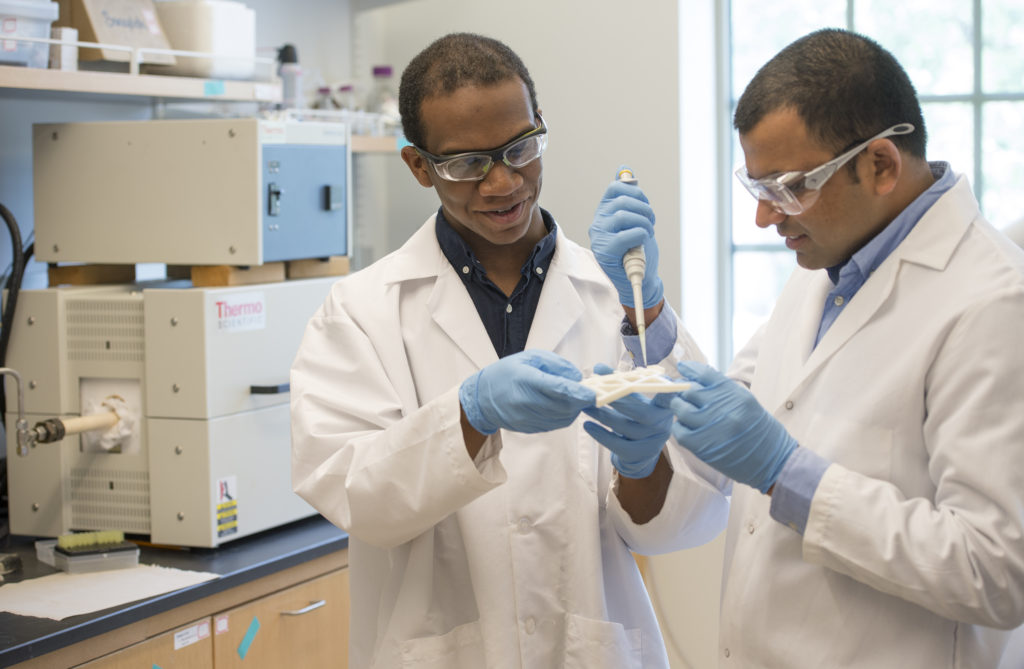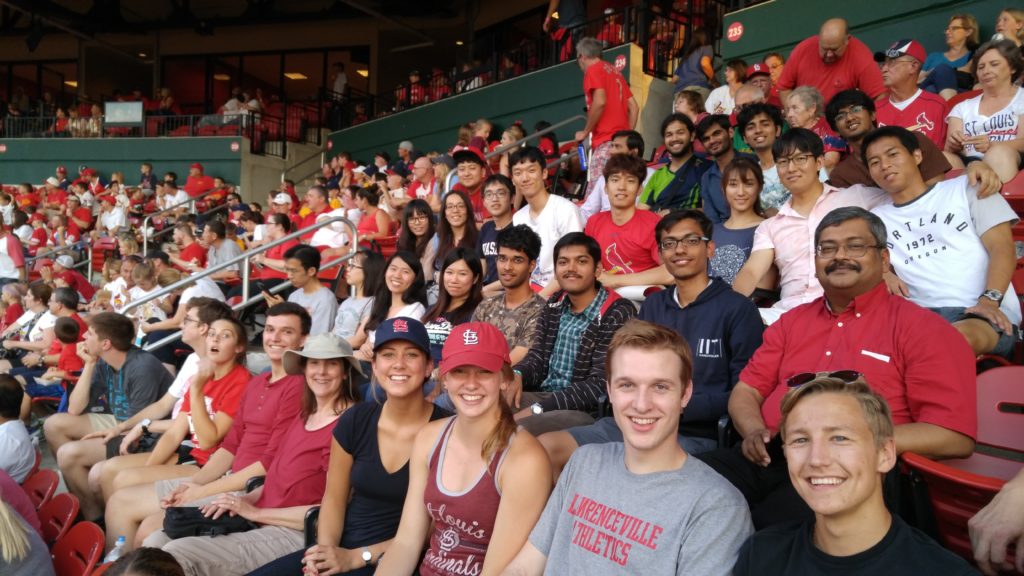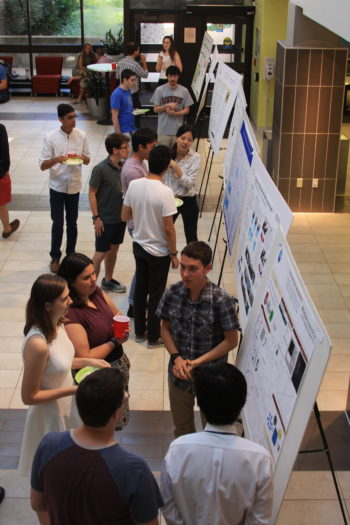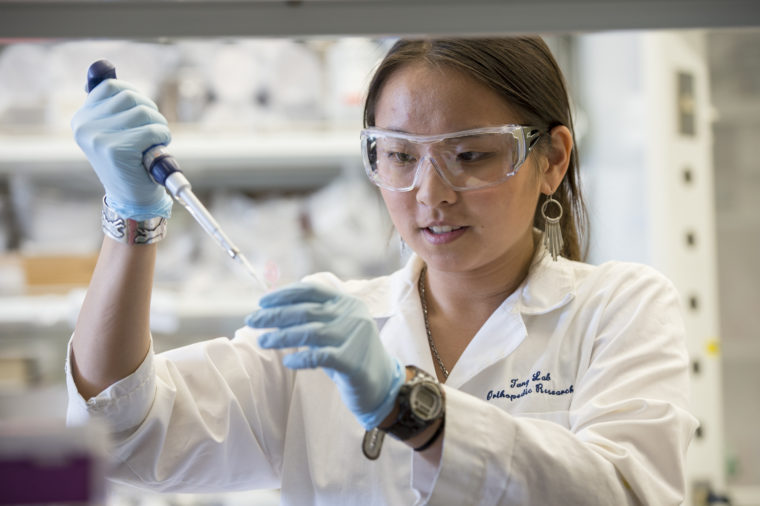Summer can be a quiet time on a university campus, but that’s hardly the case for the School of Engineering & Applied Science (SEAS) at Washington University in St. Louis. More than 70 undergraduate engineering students chose their own adventures via several summer mentor and fellowship programs offered by the school’s faculty members and staff. While each program is different, the end goal is the same: ensuring summers of study and enrichment for budding engineers.
Bolstering the engineering pipeline
In its second year, the Summer Engineering Fellowship Program (WUSEF) is designed to help students from diverse backgrounds zero in on fields of study and chart courses for their futures, with the hope of retaining them in the engineering pipeline. This summer’s 11 WUSEF fellows came from universities across the country, including four from Washington University. Each take part in an engineering research project of their choice under the guidance of a school faculty member.

“Our faculty has been amazing and they are so supportive of the program,” said Emily Boyd, a lecturer in the department of Mechanical Engineering & Materials Science, who administers WUSEF. “This program would be nothing without the faculty.”
‘Some of the students come from universities where they just don’t have research opportunities or resources that we do. I especially like it when we get those students here, because it’s life-changing.’
-Emily Boyd, lecturer in the School of Engineering & Applied Science
Boyd meets with each fellow individually for advising sessions during the course of the summer and also arranges activities for the group outside of lab time, including industry tours, GRE prep, advising sessions, volunteer opportunities and leisure activities such as touring the Arch and even zip lining. The cohort’s summer costs — from living arrangements to transportation — are covered, and each fellow is awarded a summer stipend.
EECE summer cohort
Several WUSEF students, as well as students from the McDonnell Academy Global Energy and Environment Partnership, are part of a 40-member undergraduate cohort that worked on research this summer in the Department of Energy, Environmental and Chemical Engineering.
The undergraduates came from across the United States and from several different countries, including from Seoul National University, Hong Kong University of Science and Technology and the Indian Institute of Technology. Each student was paired with a faculty member to assist them as needed. Pratim Biswas, the Lucy and Stanley Lopata Professor and chair of the department, said while the research is important, the mentoring that took place is also very meaningful to both faculty and students.
“It’s an excellent learning experience for our doctoral students, and we love it, because we can interact with these brilliant individuals,” Biswas said.
According to Biswas, the summers are typically busy, as undergrads seek research opportunities in the department’s labs. But this year, an extra effort was made by Janie Brennan, a lecturer in the department who helped coordinate the program and included activities to help form additional social connections.
The group and their mentors took in a St. Louis Cardinals game at Busch Stadium and held other planned activities, including a poster display at the end of the session so the students could share their research projects and experiences.

“This year, we brought all of them together,” Biswas said. “We also explained to them next steps in their career: how do you apply to graduate school, how do you get a job in industry, what are the metrics for good research? We did things collectively so the students could interact with their own peer groups.” The process also helps Washington University recruit top quality doctoral students, and the department has more than 100 PhD candidates actively working on research.
Undergraduate research: What I did on my summer vacation

The Department of Computer Science & Engineering also hosted summer students — 34 in all — as part of its Research Experiences for Undergraduates (REU) program.
Partially funded by the National Science Foundation, the program encourages undergrads to design their own research programs and, like the other SEAS programs, pairs them with a faculty member to help bolster confidence and ensure success.
The REU fellows, from Washington University and 14 other institutions, were selected from a field of 100 applicants from across the country. They hosted a research symposium at the end of the summer semester to present posters and showcase their work. Their areas of study included big data applications, webcam work and more.
All three programs present students with a hands-on opportunity faculty say will prove especially important as they progress toward graduation.
“We’re trying to put all that we have into these students,” Boyd said. “We’re really passionate about it. We want to help the students create a path that they want to take after they graduate with their bachelor’s. That might be industry, that might be graduate school, that might be doing something totally different. The goal is to get them to think about it and create a plan for themselves.”

Comments and respectful dialogue are encouraged, but content will be moderated. Please, no personal attacks, obscenity or profanity, selling of commercial products, or endorsements of political candidates or positions. We reserve the right to remove any inappropriate comments. We also cannot address individual medical concerns or provide medical advice in this forum.